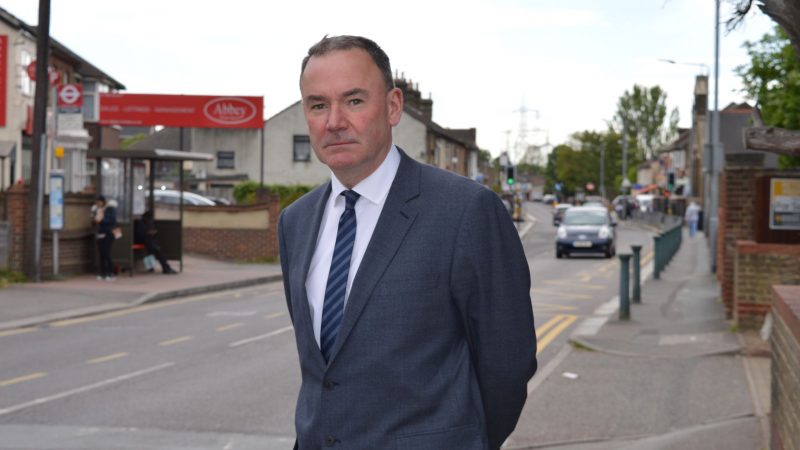
Labour MP Jon Cruddas has argued that “there is a problem” in Keir Starmer getting elected on a platform of ten pledges and “then subsequently being seen to be ripping them up” and that the Labour leader risks accusations of “inauthenticity”.
In a wide-ranging interview to be published in full later, the outgoing Labour MP for Dagenham and Rainham shared his views on the Labour Party, its position on the economy and the “bigger argument” that he feels the party needs to be making.
Cruddas compared the party leader to former Labour Prime Minister Tony Blair, telling LabourList: “Blair was never anything other than very clear about who he was and what he stood for and what his agenda was throughout… He didn’t face the charge of being elected as one thing and then trying to win the election as another.”
Starmer has faced criticism recently over comments made in TV and radio appearances suggesting that the Labour leader is not pursuing the ten pledges.
“There is this massive pivot that has occurred here that Blair never did,” Cruddas said. “And I think there is a problem, right, in getting elected on ten pledges and then subsequently being seen to be ripping them up – because there is a charge of inauthenticity that goes along with it.”
He argued that the Labour leader needed to “make a bigger argument” about the economy and “your approach and how you’re going to create new approaches to all of the elements of those ten pledges”.
He added: “You need to explain and go through in more detail why you’re sort of transitioning from those positions to new ones because, you could argue things have moved on or whatever – simply saying you’re getting rid of them without putting in place your alternative vision is a dangerous place to be.”
He said the Labour leader risked being “hit from all sides”, both for “not coming up with enough policy” and people “simply saying you’re being inauthentic”, describing that as being “quite a vulnerable position to be in”.
Starmer delivered a major speech on the economy at the start of last week. Cruddas told LabourList that he thought this could be “the beginning of something quite significant in terms of his economic framework”, which he said was “noticeably different from what’s gone before”.
“It was almost a return to a sort of post-war corporatism, which is very, very interesting if that’s where they’re going,” the Labour backbencher said. “If that’s where he’s going that’s really welcome because that could get away from these charges of simply jettisoning those ten pledges.”
He added: “That could be the way to resolve this tension between those ten pledges and not coming up with an alternative – because that alternative could be robust and very radical.”
Asked during a BBC Radio 4 interview last week whether “there are things that you promised when you ran for leader that because of changed circumstances you are now not promising”, Starmer told listeners: “Yes, the financial situation has changed. The debt situation has changed.”
His comments followed an interview by Rachel Reeves the same week, during which the Shadow Chancellor said that the commitment from Labour in 2019 to nationalise rail, energy and water “just doesn’t stack up against our fiscal rules”.
Following the interview, a Labour Party spokesperson clarified: “We are pragmatic about public ownership as long as it sits within our fiscal rules – a point Rachel was underlining in the interview by referencing this framework. For example, we know there is a positive role for rail in public ownership.”




More from LabourList
Letters to the Editor – week ending 22 February 2026
‘The coastal towns where young people have been left behind by Whitehall’
‘How Labour is modernising transport in Wales with fairness at its heart’